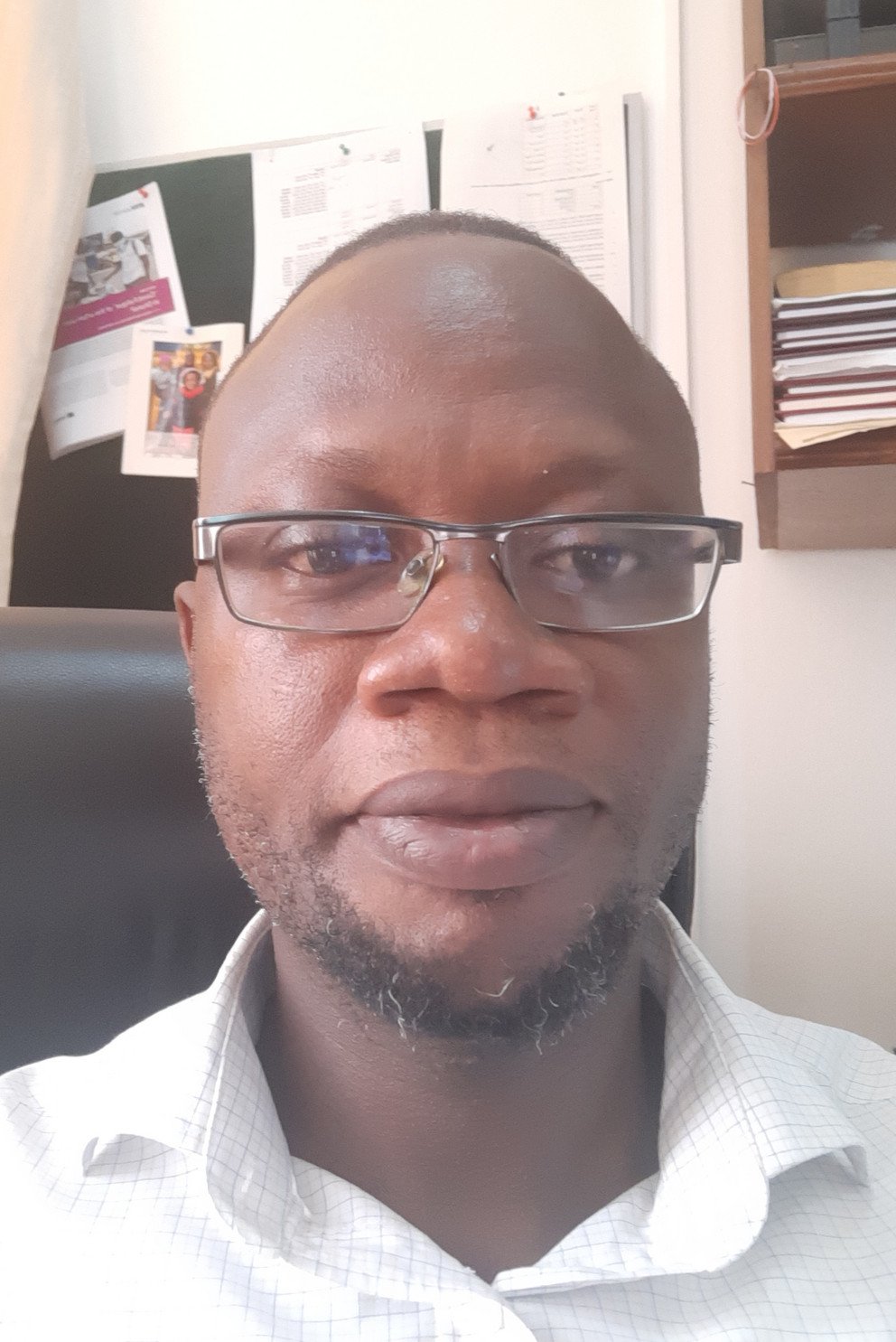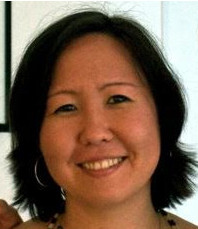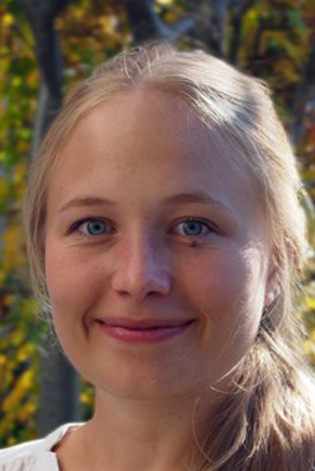Affiliated scientists and scholars
Dr. Edward Asiedu

Dr. Edward Asiedu is a development economist and a faculty at the University of Ghana Business School (UGBS) where he teaches courses in the evaluation of pro-poor development policies and intervention. He is currently a Guest Associate Professor at the Institute Of Development Policy (IOB), University of Antwerp, Belgium. He holds a Ph.D. in Economics from the University of Göttingen, Germany, and an M.A. in Economics from the University of Guelph, Ontario Canada. He is also an Invited Researcher at The Abdul Latif Jameel Poverty Action Lab (J-PAL) at the Massachusetts Institute of Technology (MIT) since 2021.
Edward is also a research fellow at the Chair of Development Economics at the University of Passau in Germany and holds research affiliate positions on projects at the Center for Development and Cooperation (NADEL) ETH Zurich, Switzerland (with Prof. Isabel Guenther), Centre for Experimental Social Sciences (CESS) at the Nuffield College University of Oxford (with Prof. Ray Duch) andthe Global Poverty Research Lab at the University of Northwestern (with Prof. Chris Udry).
Edward's research interest lies in the design and evaluation of pro-poor development projects and interventions in the broad areas of development economics, development finance, agricultural finance, experimental economics, and migration and remittances data analysis. Overall, his main research interest and passion lie in the design and evaluation of interventions that have the potential of reducing poverty and inequality.
In terms of current research, among others he has received grants to examine how digital business training can impact the outcomes of small businesses in Ghana (International Development Research Centre (IDRC), Canada), to examine ways by which theGhana national identification and digital payment systems can help to nudge informal pension contributions in Ghana (Bill and Melinda Gates Foundation through JPAL), to evaluate interventions that can incentivize mobile money-based health insurance renewal (Bill and Melinda Gates Foundation through JPAL), to examine how pre-financing tractor services for poor households can improve household welfare in Northern Ghana (Christopher Udry and Dean Karlan, Northwestern), to examine the impact of networking and legal support on women businesses in the middle of a pandemic (Private Enterprise Development in Low-Income Countries (PEDL) and Weiss Fund for Research in Development Economics), to examine the impact of free electricity meters on welfae in poor slum households in Ghana (Swedish International Development Cooperation Agency, Environment for Development (EfD)), how to incentivize vaccine uptake in rural Ghana (University of Oxford and Hitotsubashi Institute for Advanced Study, Japan) and to evaluate information campaigns aimed to reduce out-of-pocket health expenditures among the poor (OOPE) (Swiss Programme for Research on Global Issues for Development (r4d programme)).
He has presented his work at a number of important international conferences, such as the University of Oxford’s Centre for the Study of African Economies (CSAE) conference on Africa’s development, the National Bureau of Economic Research (NBER) in Boston, PEGNET Development Conference in ETH Zurich Switzerland, Canadian Economics Association (CEA) conference in Nova Scotia Canada, Economic Development Conference at the University of Wisconsin -Madison, the Economic Science Association (ESA) Conference at the University of California, Santa Cruz, etc. He is a member of the Economic Science Association and the Canadian Economics Association. He has published his work in journals including Proceedings of the National Academy of Sciences, Review of Income and Wealth, World Development, World Development Perspective, Review of Development Economics, International Journal of Development Issues, etc.
As part of his international and community service, has consulted for a number of international organization on different projects. In 2022 he consulted for the World Bank on how to improve service delivery in the public sector in Ghana (World Bank). In 2021, he also consulted for the World Bank on collecting household and firm-level data to inform policy (World Bank and Ghana Statistical Service). From 2018 to 2019 he consulted for the European Union on improving resilience against climate change (REACH-European Union and IWMI). In 2018 He also worked for the FAO on evaluating the Ghana Medium-Term Agricultural Sector Investment Programme (METASIP), METASIP I & II Evaluation. In 2017, he consulted for the World Bank on income tax mobilization and non-compliance in Ghana (World Bank). Also, for the same year, he worked as a consultant for the World Bank on district governments’ tax collection and expenditure allocation towards the provision of public goods in Ghana. He has consulted for the GIZ on a number of development financing projects as a national expert. The specific project he has worked on, inter alia, for the GIZ includes the evaluation of the “Farmer Business School Training Programmme”, and the baseline for linking smallholder farmers to high-value markets “MOAP- Market linkages programme”. Edward has also worked as the lead consultant for the GIZ and the Ministry of Finance (MoF) (GIZ-MoF joint project) in analyzing data and writing the financial sector diagnostic report for 2018, which captured trends in the financial sector and trends in mobile money transfers in Ghana.
In 2022 he served as a grant reviewer for the IDRC grant 2022- 2033 grant cycle. In terms of training public sector officers across Africa, in 2022 in Abuja, he served as a trainer for public sector workers across Africa on Evaluating Social Programs in Africa, organized for J-PAL, Massachusetts Institute of Technology (MIT). Also in 2022, he served as a trainer in Accra on how to design and run Randomized Development Evaluations (Impact Evaluation) for public sector policy actors in Ghana, organized and funded by the London School of Economics and the International Growth Centre (IGC). He also served as a speaker at the 2021 Jobs and Opportunity Initiative (JOI) African Scholars Program, a Grant program organized by the Abdul Latif Jameel Poverty Action Lab (J-PAL) at the Massachusetts Institute of Technology (MIT).
In his spare time, he likes walking, running, playing football (soccer), and playing squash.
Dr. habil Marina Dodlova

Dr. Marina Dodlova is Akademische Rätin a.Z. (similar to Assistant Professor) at the Chair of Political Economy at the University of Münster. She is also a CESifo Research Affiliate and a member of the Standing Field Committee on Development Economics of the German Economic Association.
Marina obtained her PhD in Economics from University Paris Ouest Nanterre and then was teaching and research fellow at University Paris 1 Panthéon-Sorbonne and the German Institute of Global and Area Studies (GIGA Hamburg). She joined the Chair of Development Economics at the University of Passau for the period of 2016-2023 during which she got a Habilitation.
Marina has many publications in international peer-reviewed journals including the Journal of Public Economics, Labour Economics and European Journal of Political Economy and has received multiple research grants, including some from the UNU-WIDER and LSE-IGC. Her research interests include the political economy of development and the politics and economics of climate and global shocks.
Dr. Manuela Fritz
![[Translate to Englisch:] Foto Manuela Fritz](/fileadmin/_processed_/4/0/csm_ela_neu_2369be82e5.jpg)
Manuela Fritz earned her doctoral degree in Economics from the University of Passau and the University of Groningen (Netherlands). She worked as a research associate at the Chair of Development Economics from 2019-2023. Her research lies at the intersection of health economics and development economics and contributes to innovative solutions for improving public health and health care systems in low- and middle-income countries. The focus lies in particular on cost-effective solutions for the prevention and treatment of chronic diseases and the investigation of the health consequences of climate change. In her works, she applies micro-economic and -econometric methods and relies on insurance data, social network data, geospatial data, climate simulation and health simulation models, as well as primary data collected in the field via household surveys.
From 2023-2024, she worked as a postdoctoral researcher at the University of Groningen. Since June, 2024, she works a postdoctoral researcher at the Chair of Global Health at the Technical University Munich (TUM).
For more information, please visit manuelafritz.net. You can contact her at manuela.fritz@tum.de.
Dr. Nathalie Luck

Nathalie Luck earned her PhD in Economics from the University of Passau and holds a master's degree from the University of Glasgow. As an applied micro-economist, her research interests lie in the areas of climate change, environmental conservation, and smallholder farming, with a particular focus on developing countries. Much of her work is based on data collected primarily in Indonesia, but she also utilizes census data and remote sensing data. Nathalie frequently collaborates in interdisciplinary teams. As a postdoctoral researcher at the University of Passau, Nathalie coordinated two projects related to sustainable smallholder farming in Indonesia, concentrating on organic farming and soil testing.
Dr. Ann-Kristin Reitmann

Ann-Kristin Reitmann has accepted a new position as a tenure-track junior professor in “Behaviors, Perceptions, and Societal Transformations” at the Centre de Recherche en Économie & Management (CREM) and the Université de Rennes in France. Congratulations!
Before that she was an Assistant Professor (Akademische Rätin a.Z.) at the Institute of Health Economics of the Leibniz University of Hannover.
As an applied microeconomist, she uses experimental and quasi-experimental methods to explore research questions related to sustainable development. Her research is mainly set in developing countries and covers topics on gender, environmental conservation, climate change and informal insurance, and is mainly set in a developing country context using primary data. She also works on impact evaluations of infrastructure projects and survey experiments to explore the role and measurement of individual preferences and social norms.
She earned her doctoral degree in Development Economics at the University of Passau and holds a Master of Science in Economics from the University of Cologne.
For more information please visit https://sites.google.com/view/ann-kristin-reitmann.
You can contact her at ann-kristin.reitmann@univ-rennes.fr

